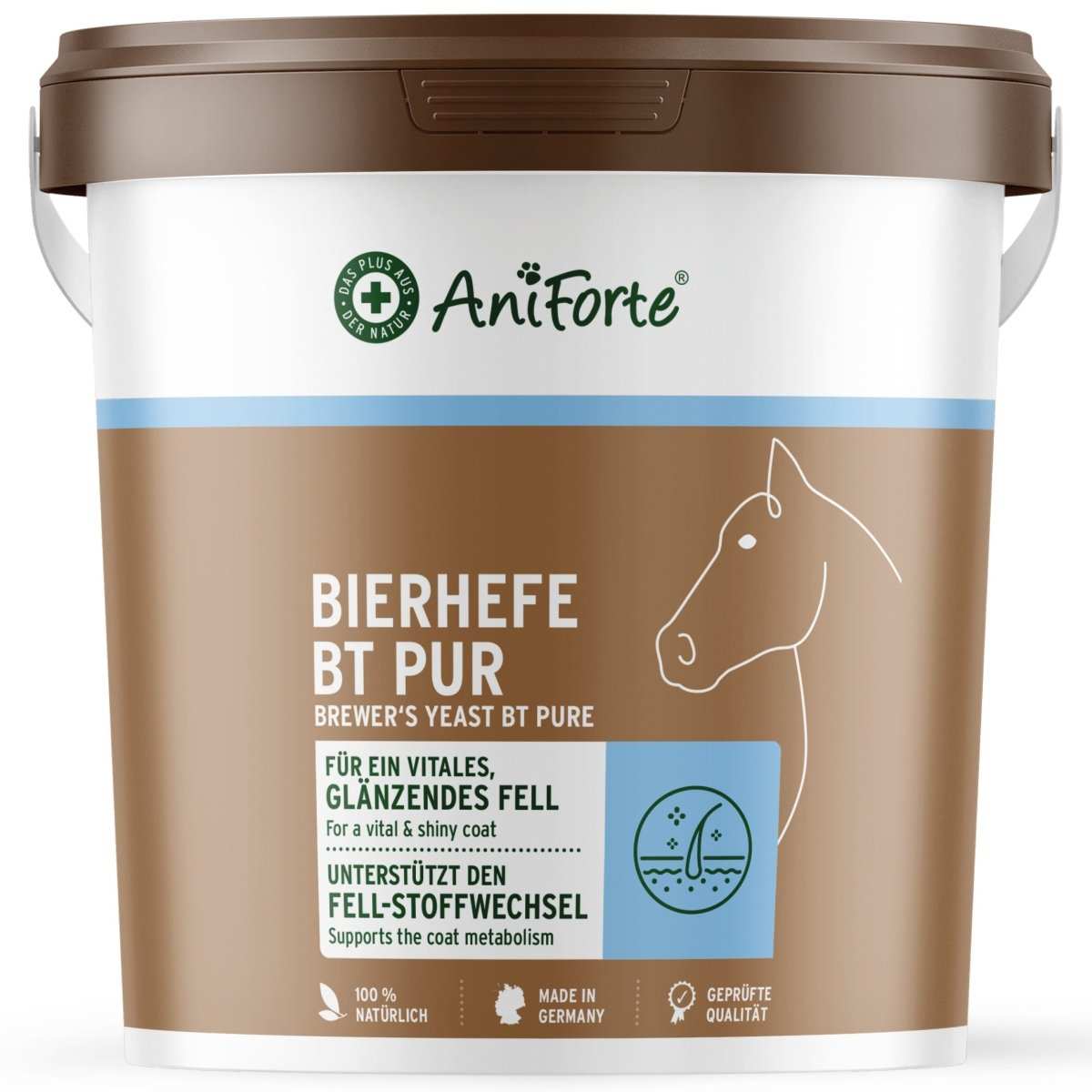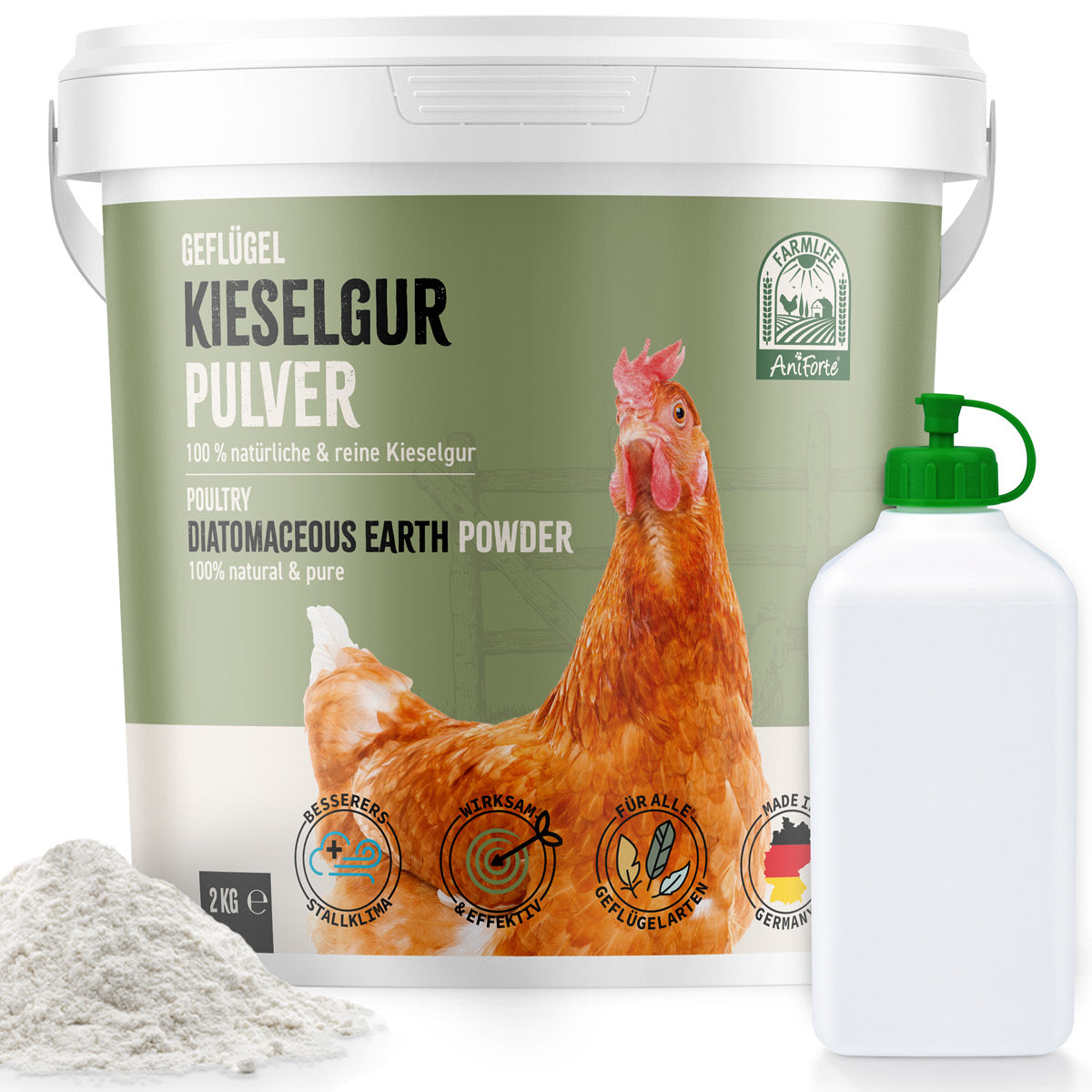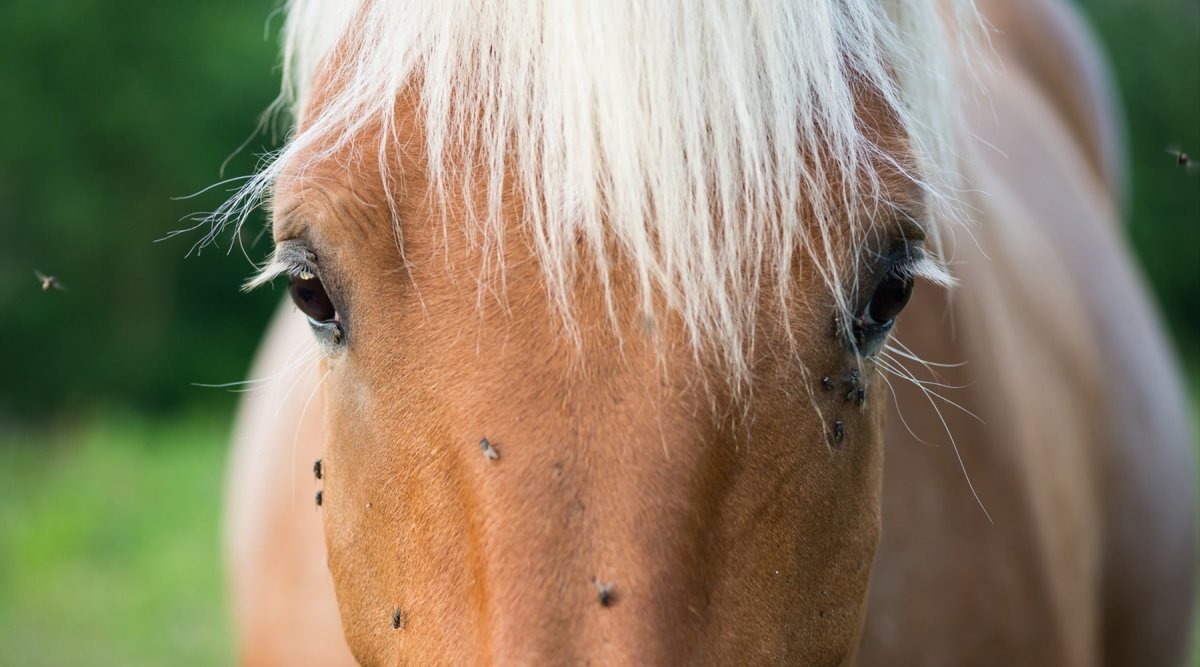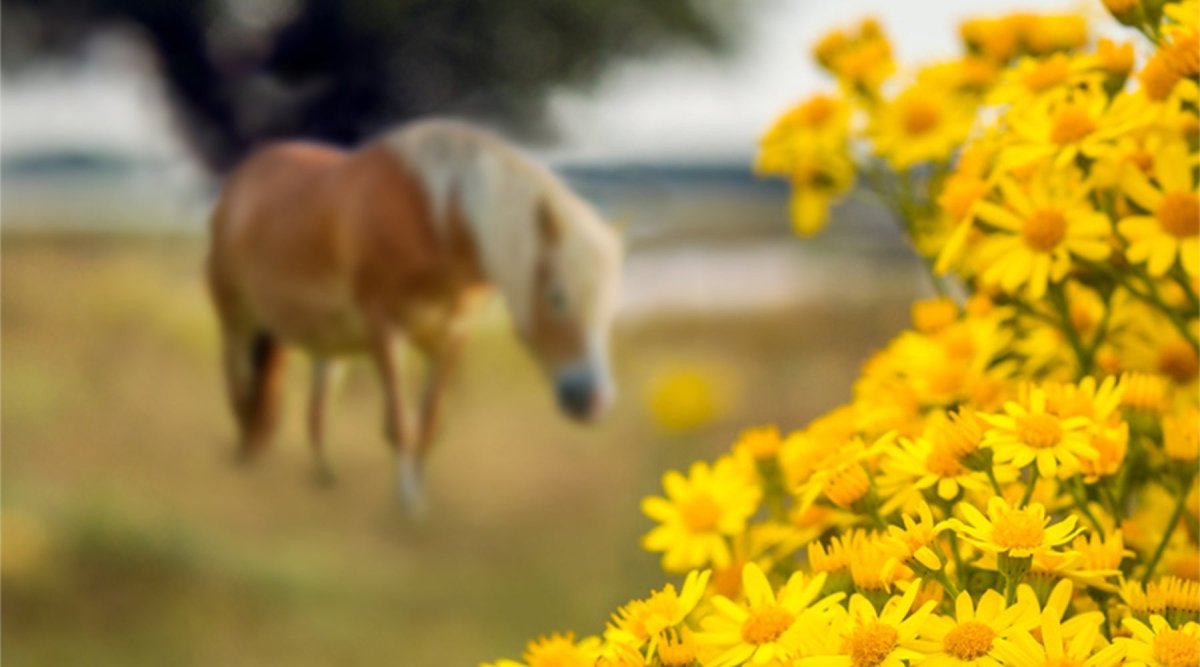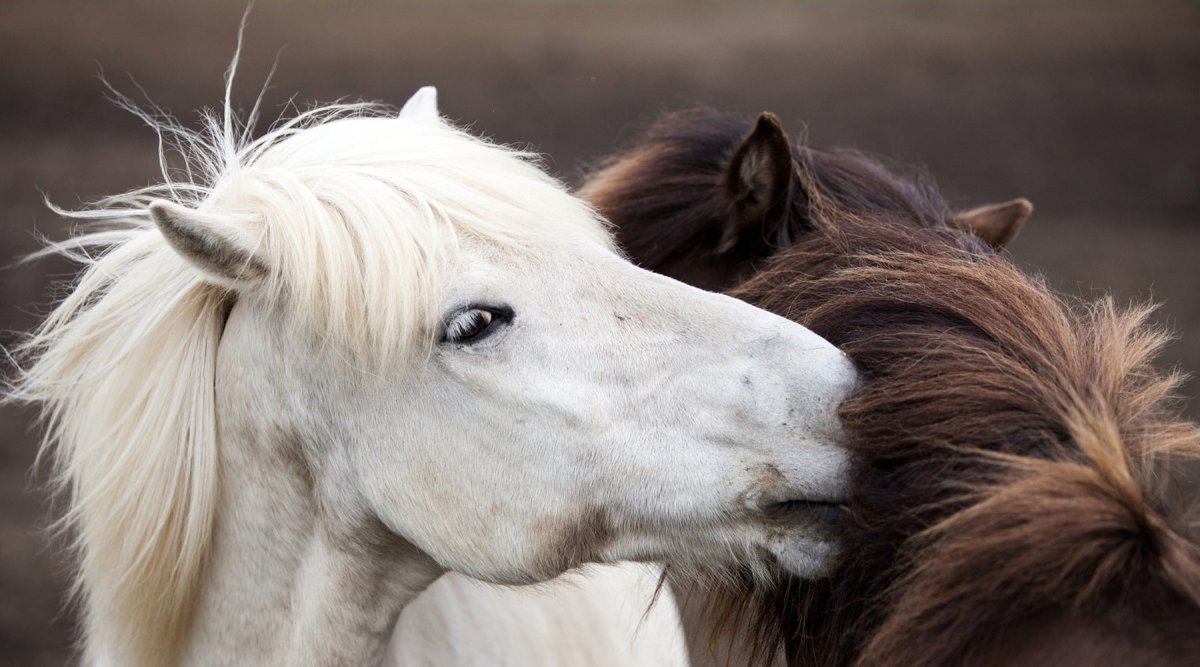In the summer months, horses and riders are often annoyed by the flying pests buzzing around them. While your animal tries to fight the insects by thrashing its head and tail, kicking and running away, you as the owner wonder how you can help your horse fight them off - preferably with natural means. Answers are provided by our veterinary practitioner Angelica von AniFortewho also knows why many of the buzzing pests are not only annoying, but also dangerous to your horse's health.
Which insects cause problems for your horse?
Many insects are much more than a nuisance - they can cause unrest in a herd, trigger allergies, infect wounds and cause inflammation. In the months from May to August, horses tend to be more jumpy and nervous due to constant contact with the pests. This in turn causes irritability and stress, and can also lead to emaciation and loss of condition. This condition is exacerbated if your horse is not safe from its persecutors even in the stable.
In addition to the obvious annoyance that insects cause for horse and rider, they often leave behind itchy bites and wheals, which can become unpleasantly inflamed if rubbed. The bites become really dangerous when the flies transmit diseases. The following insects can make life difficult for your horse.
True flies
True flies include, for example, the calf fly, which is very popular in stables. This biting fly is a typical carrier of diseases, as it uses its proboscis to transmit bacteria, for example.
Other subspecies of true flies do not bite, but prefer to suck tear fluid. You probably know them, because in the summer months they are found in large numbers around the eyes and especially in the inner corner of your horse's eye. With their leg hairs, they can transmit bacteria such as streptococci and staphylococci, which inflame the conjunctiva.
Typical signs of conjunctivitis are very watery eyes and a reddened conjunctiva that can swell. The eyelids may also swell. Your horse's affected eye itches, hurts and is sensitive to light.
Midges and black flies
Midges (Culicoides midges) can be found from May to October in wind-protected wetlands, while black flies are mainly found in May and September near rivers and streams. Both mosquito species swarm mainly at dusk, but black flies also bother your pet at night. Both midges and black flies prefer to bite in areas of the body with little hair, such as the mane ridge, tail ridge and belly seam.
When biting, the midges secrete an anticoagulant secretion that causes severe itching and causes your horse to rub. As a result, the initially pin-sized papules can develop into eczema-like wounds with more or less bald manes and tails. If your horse also develops small weeping sores on the head, neck and croup, it is probably sweet itch. This is an allergic skin reaction to the saliva of biting insects, which can also become inflamed due to bacteria entering the skin. Not only midges and black flies can be responsible for this, other mosquitoes also cause this allergic reaction.
Ticks
Ticks can transmit Lyme disease or babesiosis in horses. Preferred bite sites are hard-to-reach areas of the body such as the crook of the elbow, the inside of the thigh or your horse's head and neck. The "common wood tick" is particularly common and has its heyday in spring and late summer. Ticks sit in undergrowth or on tall grass, where they lie in wait for their victims and are swiped off unnoticed. Grazing horses whose paddocks border forests with lots of foliage are particularly at risk.
Horse flies
Horse flies are active between May and October and fly at horses, cows and even humans. As they cannot see very well and can only distinguish between light and dark, they orientate themselves on dark objects or bodies. Anything that is in motion and also exudes a strong odor, e.g. sweat, attracts particular attention. Your horse is therefore very desirable when it gallops across the pasture.
Fortunately, horse flies do not transmit diseases in our latitudes, but their bites are extremely painful, itchy and can trigger allergies.
How can I protect my horse from insects?
There are numerous measures you can take for your animal to prevent disease or avoid being permanently bothered by the parasites.
Protection with clothing or blankets
Light-colored clothing helps to protect horses and riders from horseflies. Fine-meshed eczema blankets provide your horse with relief in spring, summer and fall and can protect it from midges and black flies. In addition to the fine mesh, high breathability is crucial. Special functional fabrics ensure that there is no heat build-up underneath. The fit of the eczema rug is just as important, especially if it is worn around the clock.
You can prevent flies buzzing around the head with fringed headbands or mesh masks. Fly hoods and fly masks can also be used as an external defense against real flies.
Protection with fly traps
Horsefly traps can be set up in the pasture. They work very effectively as the insects find it difficult to escape the trap: A black ball, which the parasites mistake for a horse's backside, guides them through a net to a container filled with rinse water hanging above.
Insects can also be destroyed without poison or chemicals by setting up a fly trap or a fly killer powered by electricity and black light. Alternatively, fly strips can be used, but these should be placed at a safe distance from swallows and birds in the barn. Other small fly repellents such as adhesive strips, slat strips or fans can also help your animal in the barn.
Pasture management
Pasture management refers to adapted grazing times. For example, you can protect your horse from midges and black flies by keeping it outside only from 10 am to 4 pm. This way you avoid the main flight times. Insects are also more likely to be out and about in hot and humid weather, just before a summer rainstorm or thunderstorm. However, they do not like wind and storms.
Other measures to control insects include suitable pasture shelters with the above-mentioned fly traps. Ideally, extensive areas of land should be used for grazing, preferably without forest edges or close proximity to bodies of water. If the infestation becomes too great, temporary stabling can also help.
Repellents or insect repellents
Repellents do not kill the insects, but drive them away. They mask the horse's own odor and keep pests away. However, their effectiveness is limited. For many horse owners, the question arises as to whether they should be chemical. The synthetic active ingredients DEET (diethyltoluamite) and Icardin are very effective as repellents, but their use is controversial. Natural alternatives based on the power of essential oils are lavender, geraniol, neem oil, lemon oil, cloves, aniseed, tea tree oil and cedarwood.
There is no need to resort to chemical hammers for insect repellents either. For prophylaxis against summer eczema, for example, a spraywhich protects your horse from heavy fly infestation with a mixture of different oils. To prevent thrusting and inflammation from bites, you can use the Horsefly EX Spray for effective natural prevention. Sun protection for your horse is included.
Pasture and stable hygiene
Hygiene, whether in the stable, paddock or pasture, is often half the battle against insect infestation. You should make sure that you regularly collect horse droppings in the pasture. In the stable, wet spots, damp hay or silage, waste garbage cans and, above all, deep litter boxes provide ideal breeding grounds for female insects. Water buckets should be emptied and placed upside down outside to dry.
In addition, you can naturally reduce the insects' habitat by providing a clean stable aisle, a dry box and covered rainwater troughs. Ideally, the manure heap should be far away from the stable. Daily mucking out and removal of feed residues as well as cleaning troughs and drinking troughs is also a good basis for preventing a mass of flies.
If you take all these measures to repel insects into account, you will help to contain the situation and ensure a little more peace and quiet. Your horse will thank you for it!

